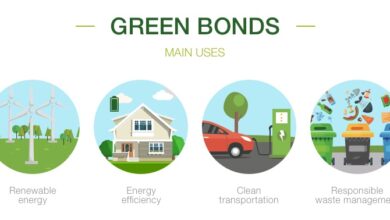The Potential of Solar Energy for Sustainable Power Generation

Solar energy is a renewable and abundant source of power that has the potential to revolutionize the way we generate electricity. With the increasing demand for energy, the use of solar energy is becoming more important in achieving sustainable development. In this article, we will explore the potential of solar energy for sustainable power generation.
1. Introduction
The world is facing a growing energy crisis. Fossil fuels, which have been the primary source of energy for the past century, are finite and non-renewable. In addition, the use of fossil fuels contributes to climate change and environmental degradation. Therefore, it is essential to explore alternative sources of energy that are renewable, sustainable, and environmentally friendly. Solar energy is one such source.
2. Understanding Solar Energy
Solar energy is energy that is generated from the sun’s radiation. The sun emits light and heat energy, which can be harnessed through solar panels to generate electricity. Solar panels contain photovoltaic cells that convert sunlight into electrical energy. This process is known as the photovoltaic effect.
3. Types of Solar Energy
There are two types of solar energy: passive solar energy and active solar energy. Passive solar energy refers to the use of sunlight for natural lightings and heating, such as using windows and skylights. Active solar energy, on the other hand, refers to the use of solar panels to generate electricity.
4. Advantages of Solar Energy
There are several advantages to using solar energy. Firstly, solar energy is renewable and sustainable. The sun is an abundant source of energy that is not likely to run out any time soon. Secondly, solar energy is environmentally friendly. Solar panels do not emit greenhouse gases or other pollutants that contribute to climate change. Thirdly, solar energy can be used to generate electricity in remote areas where access to traditional power sources is limited.
5. Challenges of Solar Energy
Despite its many advantages, there are also several challenges to using solar energy. Firstly, solar panels can be expensive to install and maintain. Secondly, solar energy is intermittent, meaning it is only generated during the daytime and on sunny days. This makes it difficult to rely solely on solar energy for power generation. Thirdly, the efficiency of solar panels is affected by factors such as weather conditions, location, and orientation.
6. Solar Energy and Sustainability
Solar energy plays a crucial role in achieving sustainable development. Sustainable development refers to meeting the needs of the present generation without compromising the ability of future generations to meet their own needs. Solar energy is renewable and sustainable, making it an ideal source of energy for achieving sustainable development.
7. Solar Energy vs Fossil Fuels
Solar energy and fossil fuels are two very different sources of energy. Fossil fuels are finite and non-renewable, while solar energy is abundant and renewable. Fossil fuels are also environmentally damaging, while solar energy is environmentally friendly. Finally, fossil fuels are expensive, while solar energy is becoming increasingly affordable.
8. Solar Energy in Developing Countries
Solar energy has the potential to transform the lives of people in developing countries. Many people in these countries do not have access to electricity, which limits their ability to access healthcare, education, and other basic needs. Solar energy can provide a reliable source of electricity to these communities, improving their standard of living and promoting economic development.
The Future of Solar Energy
The future of solar energy is bright. As technology advances, solar panels are becoming more efficient and affordable. In addition, governments around the world are investing in solar energy as part of their efforts to combat climate change and promote sustainable development. The International Energy Agency predicts that solar energy will become the cheapest source of electricity in many parts of the world by 2030.
- How does solar energy work? Solar energy is generated from the sun’s radiation, which is converted into electricity using photovoltaic cells in solar panels.
- Is solar energy environmentally friendly? Yes, solar energy is environmentally friendly because it does not emit greenhouse gases or other pollutants that contribute to climate change.
- What are the advantages of solar energy? The advantages of solar energy include being renewable, sustainable, and environmentally friendly. It can also be used to generate electricity in remote areas where access to traditional power sources is limited.
- Are there any challenges to using solar energy? Yes, some challenges to using solar energy include the cost of installation and maintenance, intermittency, and factors that affect the efficiency of solar panels such as weather conditions and location.
- What is the future of solar energy? The future of solar energy is bright, as advancements in technology and government support are making it an increasingly viable option for power generation. It is predicted to become the cheapest source of electricity in many parts of the world by 2030.



